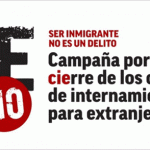Annual Survey on Hate Crimes

What is a hate crime?
Hate crimes are generally understood as criminal acts motivated by bias or prejudice towards particular
groups of people. In other words, the perpetrator selects a victim based on the victim’s real or perceived membership of a particular group (there can also be an overlap of identities). Criminal acts can include physical attacks, threats, damage to property (such property is chosen because of its association with a target group and can include personal property, such as homes or vehcles, as well as places of worship, cultural or other community centers). Unfortunately, not all countries have specific hate crime laws, which complicates detection of the phenomenon and leaves the victims powerless.
What do we do?
Monitoring and documenting hate crimes is one of Pro Igual´s core projects. We realize that many victims do not report hate crimes because they fear repercussions, because they think nobody would believe them or do anything, or even because simply dod not know how. As a result, an estimated 95% of such crimes remain unreported. And the States commonly have little incentive to address this problem.



